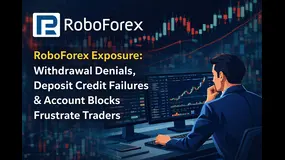Abstract:Companies racking up more debt are outperforming those reducing their debt. Goldman explains why, and the companies benefitting form this trend.
Over the past year, investors have shown a preference for companies with quality balance sheets.However, equity strategists at Goldman Sachs have found a more specific and “unusual” performance trend that runs counter to the marketwide leaning: firms spending cash to reduce their debt are lagging those issuing more debt. They introduced two new baskets of stocks to keep an eye on this trend.Visit Business Insider's homepage for more stories.Strategists at Goldman Sachs and elsewhere have recently recommended companies with strong balance sheets as sound investments to weather a global economic slowdown.Beyond the intuitive reason that their cash reserves are higher, these so-called quality stocks are in vogue because they've outperformed others splurging cash over the past year.Investors haven't always rewarded prudent uses of cash. For much of the 10-year bull market, when interest rates were close to zero, companies with the weakest balance sheets were able to tap the debt markets to raise capital. But that source of easy money was gradually closed off as interest rates rose, raising the allure of companies with more cash discipline. “Recent market performance indicates a clear investor preference for safe, high quality balance sheets rather than firms investing for growth, returning cash to shareholders, or paying down debt,” said David Kostin, the chief US equity strategist at Goldman, in a recent note to clients.And yet, Kostin's team found a more specific performance trend that runs counter to the marketwide preference for quality: companies racking up more debt are outperforming those reducing their debt. “Debt reducers” have underperformed “debt issuers” by 10 percentage points over the past year — 3% versus 13%, Kostin said. “This underperformance is unusual because most 'quality' strategies have outperformed during 2018 and into 2019,” Kostin said.Read more: The world's largest wealth manager just made a significant change to its $2 trillion portfolio — and it's a wake-up call to anyone invested in US stocksOne reason for this counter-trend has to do with Goldman's methodology, Kostin said. The strategists screened companies with the highest trailing 12-month net payments (or issuance) of debt as a share of their enterprise value. Unlike market capitalization, enterprise value takes account of how much debt a company has.This meant that Goldman's baskets of stocks skewed towards companies with lower valuations, Kostin said. “Our long/short value factor has lagged by 12% during the past year as investors have continued to reward growth stocks (+6%),” he added.It's also unusual because companies raised their cash spending by 25% to $2.8 trillion last year, according to Kostin, but investors have not rewarded most kinds of cash spending like debt repayments.As Kostin stressed, investors largely prefer companies with strong balance sheets. But this specific screening — of how companies are tackling their debt relative to their enterprise value — is one he says investors should keep an eye on. The basket of companies issuing more debt (which has outperformed the cohort of debt reducers) includes Twitter, Netflix, General Motors, Cigna, and Con Edison.
Disclaimer:
The views in this article only represent the author's personal views, and do not constitute investment advice on this platform. This platform does not guarantee the accuracy, completeness and timeliness of the information in the article, and will not be liable for any loss caused by the use of or reliance on the information in the article.







